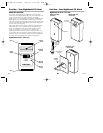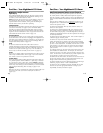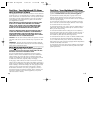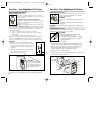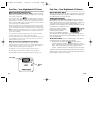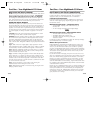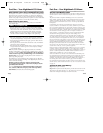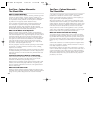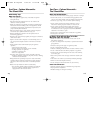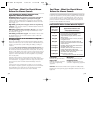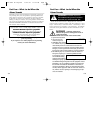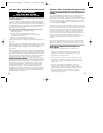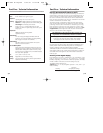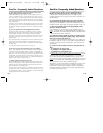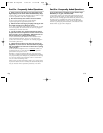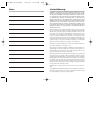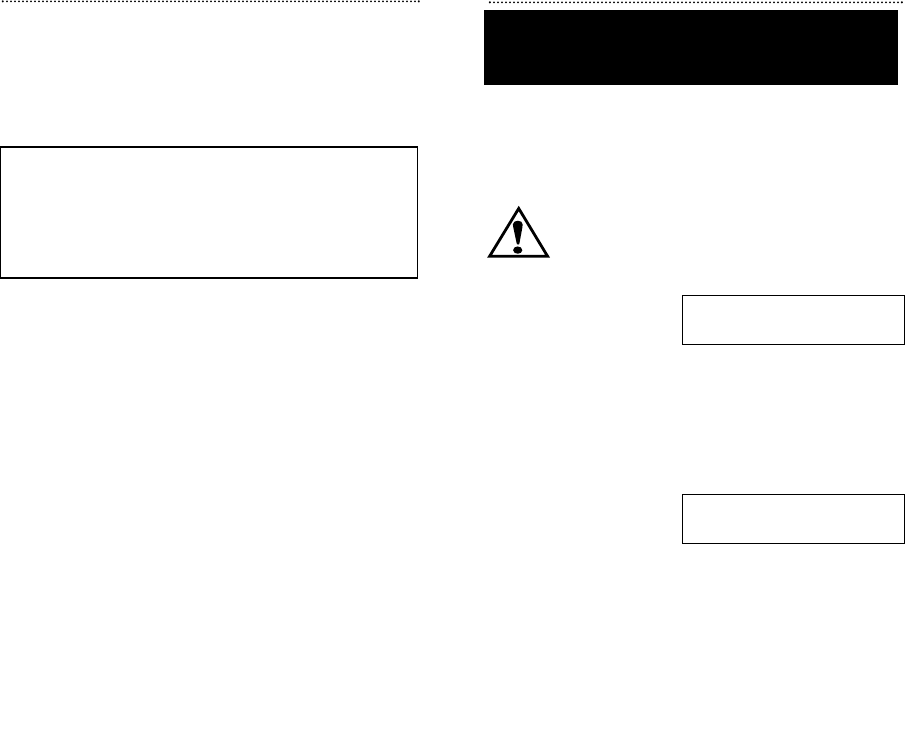
4-2
4-1
Part Four – What to do When the
Alarm Sounds
Part Four – What to do When the
Alarm Sounds
Determine if anyone in the household is experiencing symptoms of
CO poisoning. Many cases of reported CO poisoning indicates that
while victims are aware they are not well, they become so disorient-
ed that they are unable to save themselves by either exiting the
building or calling for assistance. Also young children and household
pets may be the first affected. The following symptoms are related to
CARBON MONOXIDE POISONING and should be discussed with
ALL members of the household:
Common Mild Exposure Symptoms:
Slight headache, nausea, vomiting, fatigue (“flu-like” symptoms).
Common Medium Exposure Symptoms:
Throbbing headache, drowsiness, confusion, fast heart rate.
Common Extreme Exposure Symptoms:
Convulsions, unconsciousness, heart and lung failure.
It can cause brain damage and death.
Become familiar with these common symptoms
from CO poisoning.
If you experience even mild symptoms of CO poisoning,
consult your doctor immediately!
▲
!
WARNING: Actuation of your CO
Alarm indicates the presence of Carbon
Monoxide (CO) which can KILL YOU.
When the CO alarm senses a dangerous level of CO, the
unit will emit a loud alarm pattern. The alarm pattern is 4 short
beeps – followed by 5 seconds of silence – followed by 4 short
beeps. Know how to respond to a CO emergency. Periodically
review this user’s guide and discuss with all members of your
family.
WARNING! - Actuation of this device
indicates the presence of dangerous levels of
carbon monoxide!
Carbon monoxide can be fatal! If the alarm sounds:
1) Operate test/reset button;
2) Call your emergency
services
(fire dept. or 911);
3) Immediately move to fresh
air - outdoors or by an open door/window. Do a head count to
check that all persons are accounted for. Do not reenter the
premises nor move away from the open door/window until the
emergency services responders have arrived, the premises have
been aired out, and your alarm remains in its normal condition.
4) After following steps 1-3, if your alarm reactivates within a 24
hour period, repeat steps 1-3 and call a qualified technician
to investigate for sources
of CO from fuel burning
equipment and appliances,
and inspect for proper operation of this equipment. If problems
are identified during this inspection have the equipment serviced
immediately. Note any combustion equipment not inspected by
the technician and consult the manufacturer’s instructions, or
contact the manufacturer’s directly, for more information about
CO safety and this equipment. Make sure that motor vehicles are
not, and have not been, operating in an attached garage or adja-
cent to the residence.
PHONE NUMBER
PHONE NUMBER
810-1009 AC Digital 11/13/01 11:22 AM Page 28



